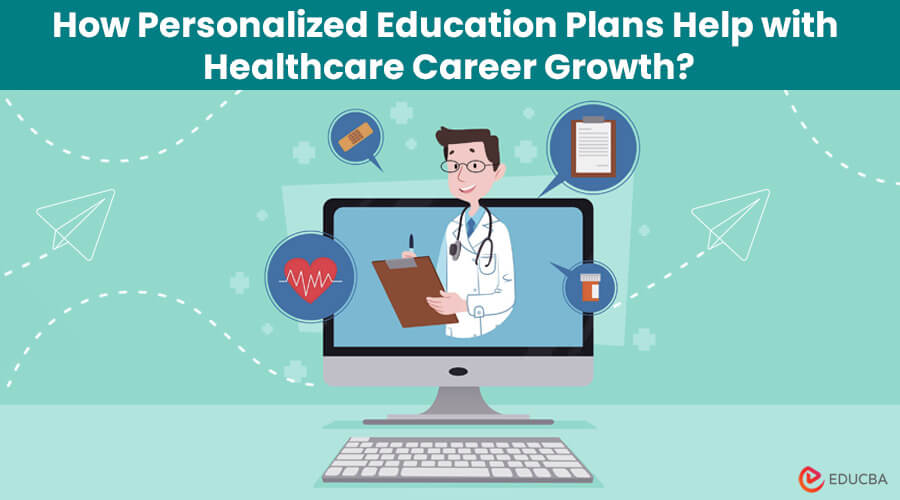
What are Personalized Education Plans in Healthcare?
Personalized education plans in healthcare are strategic blueprints that match an individual’s goals, learning style, and pace within the healthcare sector. They consider personal strengths and areas for growth, plotting a course that is as unique as the learners themselves.
For example, instead of donning a one-size-fits-all garment, you wear something tailored exactly to your measurements. Personalized education plans are the academic equivalent of a custom-made suit.
With PEPs, education becomes not just an accumulation of knowledge but a finely tuned journey towards defined objectives. Therefore, they can be incredibly helpful for healthcare professionals looking to progress in their careers.
The Power of Personalized Education Plans in Healthcare
Whether you want to explore phlebotomy career options in NJ or become a radiologist in NY, a personalized education plan can help you achieve your healthcare career dream.
With PEPs, you zero in on specific skills and knowledge gaps according to your specific aspirations, not just what’s covered in generic training programs. Moreover, everyone learns differently, so a PEP moves at your speed, challenging you when necessary and allowing more time where needed.
As healthcare evolves rapidly, a tailored plan aligns your learning with the latest advancements and protocols. So, why settle for standard education when personalization can catapult your learning experience and career forward?
Advantages of Personalized Education Plans in Healthcare
1. Choosing Mastery Over Memorization
Personalized education can shift focus from general memorization to true mastery. Healthcare demands precision and expertise—qualities that standard coursework can’t always instill. So, PEPs align educational content with real-world practice to place mastery within reach.
Here’s how PEPs make a definitive difference:
- Depth Over Breadth: They encourage deep dives into complex subjects, allowing for a robust understanding rather than superficial knowledge.
- Skill Application: Instead of merely learning theories, PEPs emphasize practical application, which is vital for the hands-on nature of healthcare.
- Feedback-Informed Iterations: Regular, personalized feedback means your plan evolves, helping you to overcome specific challenges and capitalize on progress.
2. Accelerating Proficiency Through Personalized Milestones
Another compelling benefit is that PEPs turn educational milestones into catalysts to accelerate your growth. This focus on strategic milestones doesn’t just check boxes – it pushes you to gain expertise faster.
Here’s the breakdown:
- Tailored Credentials: PEPs align learning with needed certifications and credentials, mapping out an efficient route to qualification.
- Competency Tracking: They provide clear indicators of progress, so you know when you have truly mastered an area rather than just completing a course.
- Career Laddering: By targeting education that directly impacts your desired career trajectory, PEPs streamline the journey from one professional milestone to the next.
3. Adapting to the Evolution of Medicine with PEPs
The relentless medical innovation doesn’t pause, nor should a healthcare professional’s education. Unlike static learning models, personalized education plans stand out as they adapt to changes. They ensure you remain competent and competitive, thriving amidst advancements rather than scrambling to catch up.
Here’s how they keep you apace:
- Current Curriculum Revisions: PEPs are regularly updated to reflect cutting-edge practices, ensuring that learners aren’t left practicing yesterday’s medicine.
- Agile Skill Development: They allow for the swift incorporation of new technologies and methodologies into your learning regime.
- Future-focused Opportunities: By staying current, PEPs open doors to emerging fields within healthcare that may require niche expertise.
4. Growth of Career and Personal Development Goes Hand-in-Hand
The true beauty of personalized education plans is their dual focus on professional and personal growth. PEPs embrace the notion that a flourishing career links with your overall well-being. This holistic approach to learning provides the groundwork for a successful career and a fulfilling life.
Consider these aspects:
- Self-Awareness Enhancement: PEPs encourage reflection, helping you understand how your personal attributes impact your professional capabilities.
- Resilience Building: They are structured to push boundaries, fostering the kind of strength that’s essential in high-stress healthcare environments.
- Work-Life Harmony: By accommodating personal schedules and commitments, PEPs promote a balance that reduces burnout.
5. Building Connections Through Specialized Knowledge
In the interconnected world of healthcare, who you know can be as critical as what you know. Personalized education plans inherently understand this and facilitate networking through specialized expertise.
Here’s why this works:
- Collaborative Opportunities: PEPs often involve learning projects or assignments that connect you with peers, mentors, and industry leaders.
- Specialization Appeal: By focusing on niche areas, you become a go-to person for specific knowledge, attracting professional connections.
- Conference Ready: Tailored learning ensures you are up-to-date on the latest trends, making conversations at conferences more impactful and memorable.
6. Enhanced Engagement
Lastly, personalized education plans triumph because they create a personal connection to the learning material, fueling engagement and retention. Engagement isn’t simply about paying attention; it’s about connecting with the content on a level that makes it relevant. With PEPs facilitating this connection, healthcare professionals find themselves not just learning but living their education.
Here’s the impact of that connection:
- Intrinsic Motivation: PEPs tap into your interests and career goals, igniting an internal drive to learn that outshines any external pressures.
- Reinforced Retention: Connecting with the material on a personal level increases one’s likelihood of retaining critical information when it matters.
- Active Participation: Tailored learning encourages active rather than passive participation, which enhances problem-solving abilities and critical thinking.
Recommended Articles
If this article on personalized education plans in healthcare was informative, check out the following recommendations for more similar articles.

